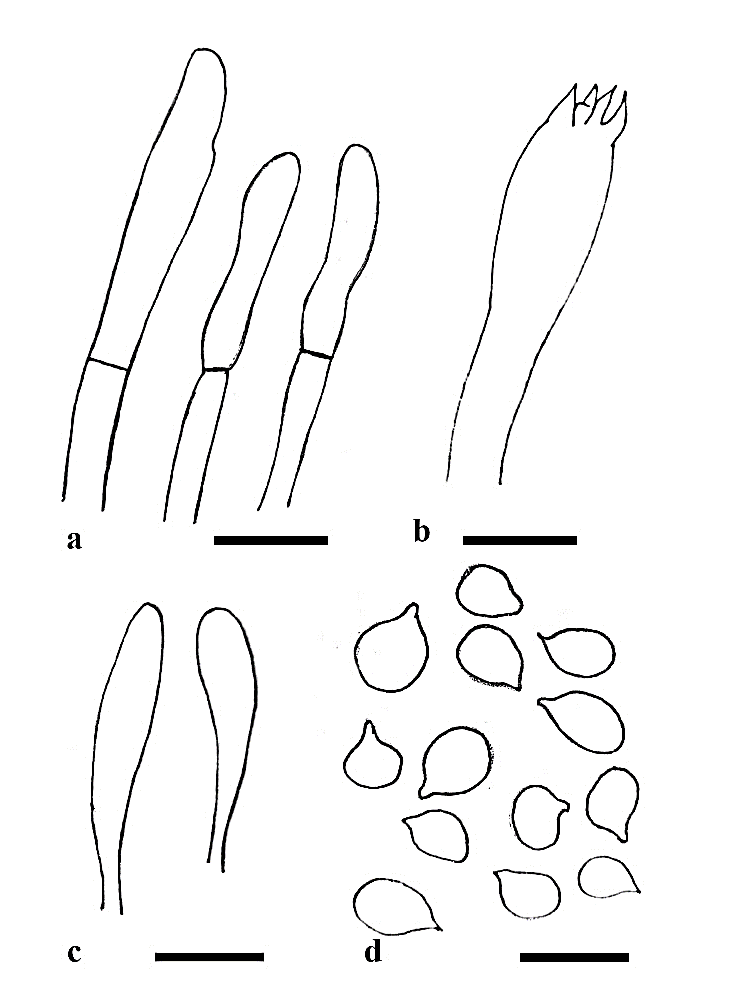Fungalpedia – Note 76 Laeticutis
Citation if using this entry: Fallahi et al. (in prep). New genera in 2010-2011. Mycosphere.
Index Fungorum, MycoBank, GenBank, Figs 1, 2.
Laeticutis was established by Audet (2010) in Russulales incertae sedis being segregated from Scutiger Paulet based on morphological characters and LSU rRNA sequence data. The genus is a monotypic ectomycorrhizal fungus, that accommodates the single species Laeticutis cristata (Schaeff.) Audet (synonyms: Albatrellus cristatus (Schaeff.) Kotl. & Pouzar). Laeticutis cristata has variable colors (pale olive-green to olive-brown, sometimes yellow in the center) and an uncharacteristic odor with a mild taste. It has a rimose or splitting, thick or thinner, smooth to cracked cap with central to the eccentric stipe. The context is single-layered, and white. The hymenophore is porous, white to olive. It has a monomitic hyphal system in the context and sometimes in the hymenophore. Basidia are long clavate. Spores are ellipsoidal to sub-spheroidal, thin-walled to thickened, hyaline, non to slightly amyloid, and whitish. The context and hymenophore turn a cherry‑red color in potassium hydroxide (KOH) and a red-violet color in sulfuric acid (H2SO4) (Audet 2010).
Type species: Laeticutis cristata (Schaeff.) Audet
Fig 1. Basidiomata of Laeticutis cristata (redrawn from the https://www.fungikingdom.net website)
Fig 2: Laeticutis cristata (redrawn from Sesli. 1998). a Inflated hyphal ends in the hymenium. b, c Basidia. d Spores. Scale bars: a-d = 10 µm.
References
Audet S. 2010- Essai de découpage systématique du genre Scutiger (Basidiomycota): Albatrellopsis, Albatrellus, Polyporoletus, Scutiger et description de six nouveaux genres. Mycotaxon 111, 431-464. https://www.mykoweb.com/CAF/PDF/Essai%20de%20d%C3%A9coupage%20syst%C3%A9matique%20du%20genre%20Scutiger.pdf
The https://www.fungikingdom.net website: https://www.fungikingdom.net/fungi photos/basidiomycota/russulales-order/albatrellaceae-family/laeticutis-cristata-albatre.html
Sesli E.1998- Ten new records of Macrofungi for Turkey. Turkish Journal of Botany 22,43-50.
https://journals.tubitak.gov.tr/botany/vol22/iss1
Entry by:
Maryam Fallahi, Center of Excellence in Fungal Research, Mae Fah Luang University, Chiang Rai 57100, Thailand.
(Edited by Kevin D. Hyde & Ishika Bera)
Published online 14 September 2023

